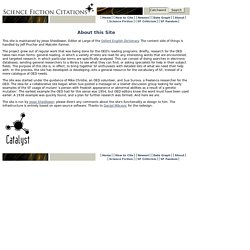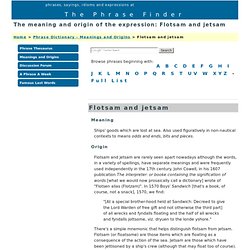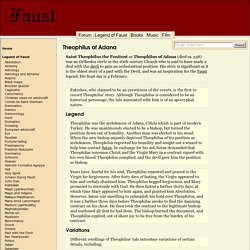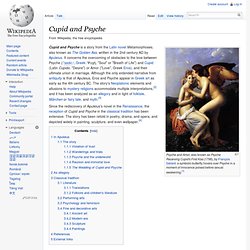

Magica. Language in Life. Hobson-Jobson. Ple. Mythos. Natura Mythica Deios. Magical Thinking. Histoire. Science Fiction. Symboldictionary.net. SF Citations for OED. This site is maintained by Jesse Sheidlower, Editor at Large of the Oxford English Dictionary.

The content side of things is handled by Jeff Prucher and Malcolm Farmer. The project grew out of regular work that was being done for the OED's reading programs. Briefly, research for the OED takes two main forms: general reading, in which a variety of texts are read for any interesting words that are encountered, and targeted research, in which particular terms are specifically analyzed. This can consist of doing searches in electronic databases, sending general researchers to a library to see what they can find, or asking specialists for help in their subject fields. Six Word Stories. Online Etymology Dictionary. List of river name etymologies. Behind the Name: Meaning of Names, Baby Name Meanings. The meanings and origins of sayings and phrases. Flotsam and jetsam. Meaning Ships' goods which are lost at sea.

Also used figuratively in non-nautical contexts to means odds and ends, bits and pieces. Origin. Reduplication. Expressions & Sayings Index. If you prefer to go directly to the meaning and origin of a specific expression, click on its relevant entry in the alphabetical list below.

Use this alphabet to speed up your search: A B C D E F G H I J K L M N O P Q R S T U V W X Y Z. The Word Detective. Word Spy. It’s Never Too Late To Be What You Might Have Been. George Eliot?

Adelaide Anne Procter? Apocryphal? Anonymous? Dear Quote Investigator: My favorite quotation about untapped potential and enduring spirit is attributed to the prominent Victorian novelist George Eliot: It is never too late to be what you might have been. This popular saying has been printed on refrigerator magnets, posters, shirts, and key chains. Quote Investigator: George Eliot was the pen name of Mary Ann Evans who died in 1880. The earliest evidence of an exact match known to QI appeared in “Literary News: A Monthly Journal of Current Literature” in 1881.
Prize Question No 31. Perry Index. The Perry Index is a widely used index of "Aesop's Fables" or "Aesopica", the fables credited to Aesop, the story-teller who lived in ancient Greece between 620 and 560 BC.

Modern scholarship takes the view that Aesop probably did not compose all of the fables attributed to him;[1] indeed, a few are known to have first been used before Aesop lived, while the first record we have of many others is from well over a millennium after his time. Traditionally, Aesop's fables were arranged alphabetically, which is not helpful to the reader.[2] Perry and Rodriguez Adardos separated the Greek fables from the Latin ones, with the Greek ones first; then they arranged each group chronologically and by source; finally they arranged the fables alphabetically within these groups.[2] This system also does not help the casual reader, but is the best for scholarly purposes.[2] Ben Edwin Perry (1892–1968) was a professor of classics at the University of Illinois at Urbana-Champaign from 1924 to 1960.
Dymaxion Artifacts / Home. The Slow Death of the American Author. Trope @ TheFreeDictionary.com. The American Heritage® Dictionary of the English Language, Fourth Edition copyright ©2000 by Houghton Mifflin Company.

Updated in 2009. Published by Houghton Mifflin Company. All rights reserved. trope (trəʊp) n 1. Playing with a Trope. Theophilus of Adana. Saint Theophilus the Penitent or Theophilus of Adana (died ca. 538) was an Orthodox cleric in the sixth century Church who is said to have made a deal with the devil to gain an ecclesiastical position.

His story is significant as it is the oldest story of a pact with the Devil, and was an inspiration for the Faust legend. His feast day is 4 February. Fairy Tales Collection.com. Cupid and Psyche. Psyche and Amor, also known as Psyche Receiving Cupid's First Kiss (1798), by François Gérard: a symbolic butterfly hovers over Psyche in a moment of innocence poised before sexual awakening.[1] Cupid and Psyche is a story from the Latin novel Metamorphoses, also known as The Golden Ass, written in the 2nd century AD by Apuleius.

It concerns the overcoming of obstacles to the love between Psyche (/ˈsaɪkiː/, Greek: Ψυχή, "Soul" or "Breath of Life") and Cupid (Latin Cupido, "Desire") or Amor ("Love", Greek Eros), and their ultimate union in marriage. Although the only extended narrative from antiquity is that of Apuleius, Eros and Psyche appear in Greek art as early as the 4th century BC. Opie Collection of Children's Literature. This site uses cookies to support some content and functions, and also Google Analytics.

By using this site you agree to their use. Find out more and opt out » This site uses cookies to support some content and functions, and also Google Analytics. More » Home Bodleian Libraries Ask a librarianSite map Contact Go to desktop site Bodleian Library & Radcliffe Camera University of Oxford Menu Section menu 1 3 Share0 Home » Finding resources » Special Collections » Special Collections catalogues & finding aids » Opie Collection of Children's Literature Opie Collection of Children's Literature RThis page contains the finding aids currently in use for the Opie Collection. Songs in the Key of Life. 100th Meme Keys. 99 Bottles. Laugh Out Loud. Once Upon A Time. Bygone Days. All Together Now. 2 Do.